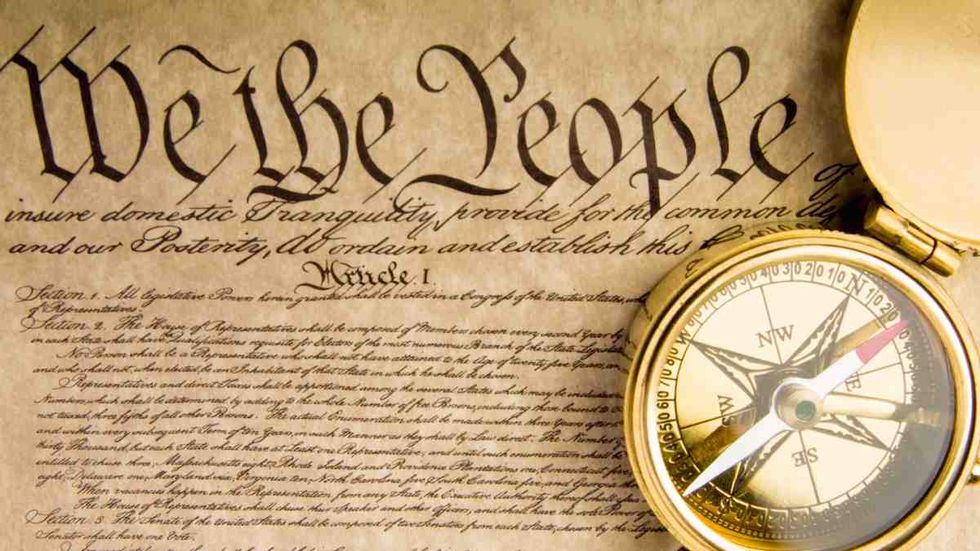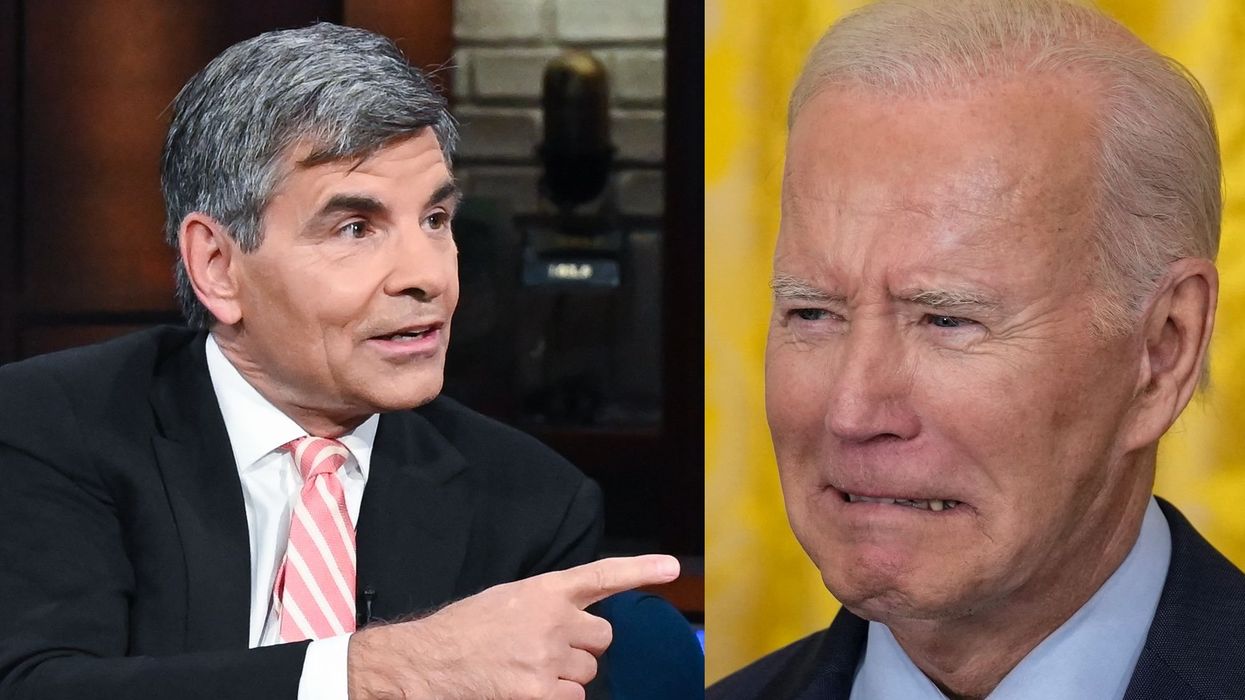
© 2024 Blaze Media LLC. All rights reserved.
Do immigration restrictions violate American tradition and sovereignty?
On Wednesday, President Donald Trump announced his support for a new immigration bill reintroduced by Senators Tom Cotton, R-Ark. and David Perdue, R-Ga., that will reorient our policy toward a more skills- and merit-based system.
The RAISE Act would reduce low-skilled immigration; cut back on the historically high influx of immigrants by half in a decade’s time; end the diversity lottery and chain migration; and prioritize those seeking green cards for employment. The bill would also ask basic questions of green-card applicants, regarding one’s skillset, prospects for self-sufficiency, and proficiency in English.
“This would be the most significant reform to the immigration system in half a century. It is a historic and very vital proposal,” President Trump said Wednesday, in announcing the bill.
The Left, naturally, is apoplectic that the Trump administration would dare to impose limits on immigration. A particular point of contention is the language requirement. CNN White House Correspondent Jim Acosta confronted Trump aide Stephen Miller regarding the RAISE Act, asserting that the administration’s proposal would violate American tradition.
“What you’re proposing, or what the president is proposing here does not sound like it’s in keeping with American tradition when it comes to immigration,” Acosta said. Quoting the Statue of Liberty-attached poem, Acosta asked if the administration is “trying to change what it means to be an immigrant coming into this country if you’re telling them you have to speak English.”
“You’re saying that [the Statue of Liberty] does not represent what the country has always thought of as immigration coming into this country? Stephen, I’m sorry, but that sounds like some National Park revisionism,” Acosta said.
He’s dead wrong. There is nothing in the American founding, history, or tradition that states certain immigration criteria are inhumane and/or unjust.
The social compact theory of the American founding is based on the fundamental principle of consent. All men are created equal. Just government, then, is only that government which men consent to be governed by.
Adding a new member to the social compact requires the consent of those already admitted. James Madison makes this point in an essay titled “Sovereignty,” “[I]n the case of naturalization a new member is added to the Social compact, not only without a unanimous consent of the members but by a majority of the governing body deriving its just powers from a majority of the individual parties to the social compact.”
As scholar Thomas G. West explains in his book, “The Political Theory of the American Founding,” in the American tradition there is no recognition of an unconditional right to immigrate to the United States (or anywhere else). The Pennsylvania Bill of Rights, which West cites, codifies the “natural inherent right to emigrate,” or leave society, but acknowledges conditions on entering society.
“[P]eople have a right to become a citizen of another country only when, as Pennsylvania states, there is ‘another [country] that will receive them.’ In other words, although there is a natural right to reject your current society, there is no natural right to become a citizen of a society that refuses to accept you. Since ‘citizenship is the effect of compact,’ there can be no right to immigrate unless there is consent on both sides: the would-be immigrants and the country ‘that will receive them,’” West writes.
Placing conditions and qualifications on immigrants, like the English language requirement, is consistent with both the Founding Founders’ thinking and the American tradition. Dr. West quotes scholar Rogers Smith, who once stated that limiting immigration is “quite obviously illiberal, inconsistent with the ideals of liberty and equality professed in … the nation’s ‘Creed.’”
“On the contrary,” West explains, “Gouverneur Morris observed at the Constitutional Convention of 1787 that ‘every society from a great nation down to a club had the right of decaling the conditions on which new members should be admitted.’”
The “governing body” James Madison refers to is Congress, which derives its power to regulate immigration from the Constitution — as Founding Father Roger Sherman explained during the debate over the Naturalization Act of 1790: “[I]t was intended by the Convention, who framed the Constitution, that Congress should have the power of naturalization, in order to prevent particular States receiving citizens, and forcing them upon others who would not have received them in any other manner.”
The consensus view of American tradition and heritage is that the people’s representatives in Congress have the both the constitutional power and the duty to determine immigration-policy criteria. Our republic is a social compact — based on consent of the sovereign American people.
There is no natural right to unlimited entry into America. The debate we are currently having, and ought to have, is “Who ought to be restricted — and how so?”
America’s body politic elected a president and a congressional majority that centered their message on re-prioritizing border security and cracking down on illegal immigration. The debate on the prudence of tighter immigration policy is a discussion that ought to be had without blowhards like Mr. Acosta expressing the sentiments of a poem as policy, and accusing the administration of racism.
Want to leave a tip?
We answer to you. Help keep our content free of advertisers and big tech censorship by leaving a tip today.
Want to join the conversation?
Already a subscriber?
more stories
Sign up for the Blaze newsletter
By signing up, you agree to our Privacy Policy and Terms of Use, and agree to receive content that may sometimes include advertisements. You may opt out at any time.
© 2024 Blaze Media LLC. All rights reserved.
Get the stories that matter most delivered directly to your inbox.
By signing up, you agree to our Privacy Policy and Terms of Use, and agree to receive content that may sometimes include advertisements. You may opt out at any time.



